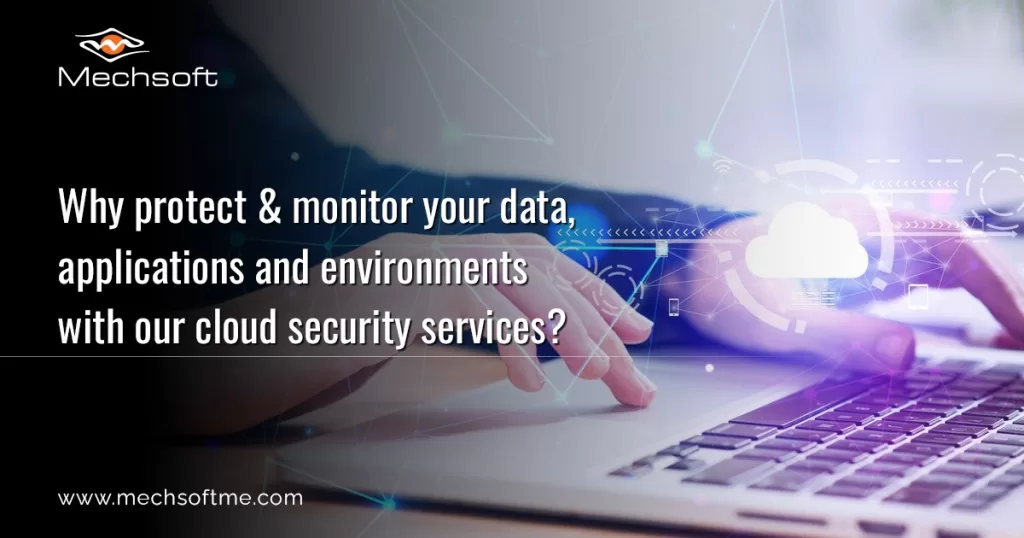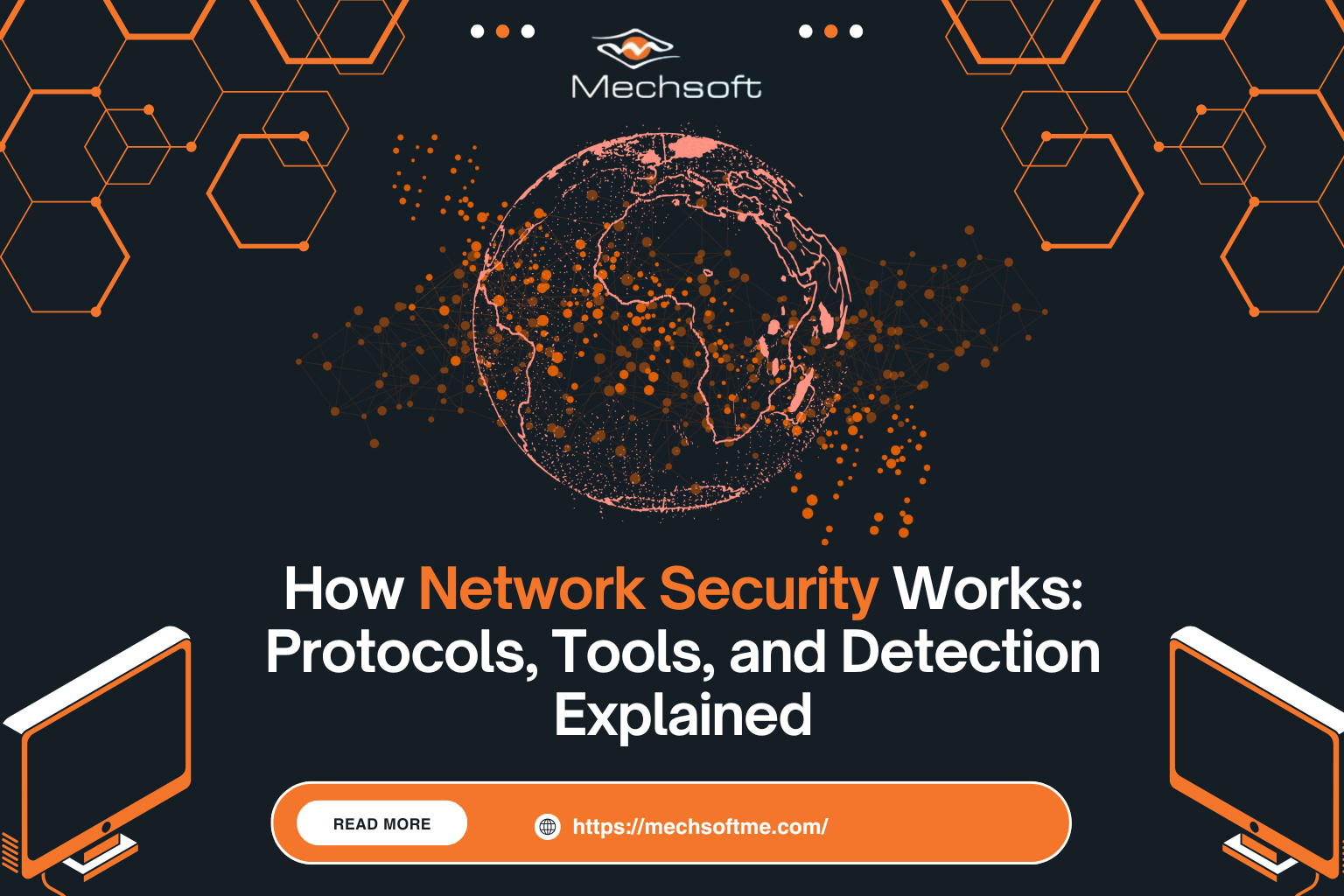Table of Contents
What is Cloud Security?
Cloud security encompasses the strategies, technologies, and measures implemented to protect data, applications, and infrastructure within cloud computing environments from both internal and external cybersecurity threats.
It aims to safeguard against unauthorised access, ensure data integrity and compliance, and provide solutions for data storage, network security, access control, regulatory adherence, and recovery from incidents.
Cloud Security Definition?
Cloud security involves a range of measures designed to safeguard applications, data, and infrastructure hosted on cloud platforms.
It entails the implementation of various security policies, techniques, and technologies including identity management systems and data loss prevention strategies to defend against unauthorized access, cyber threats, and risks from within the organization.
Types of Cloud Infrastructure
Private cloud: A computing infrastructure exclusively utilized by one organization. It can be managed by either the organization itself or an external party, with the owning entity responsible for its security.
This setup is typically favored by entities like government agencies and financial institutions that handle highly sensitive data.
Public cloud: Computing resources owned by a third-party provider that are shared across multiple organizations. These organizations jointly manage security with the provider, adhering to a model of shared responsibility.
Services such as Google Workspace and Microsoft 365, which enjoy global utilization, operate under this model.
Hybrid cloud: Merges the use of both private and public clouds, allowing organizations to leverage the advantages of each like the scalability offered by public clouds and the enhanced control provided by private clouds.
This model is often adopted by DevOps teams and others requiring adaptable and modifiable systems.
Multicloud: Use of shared computing resources by organizations that either require access to similar applications or must meet identical segmentation and privacy standards, such as those mandated by PCI DSS.
It enables organizations to utilize services from various providers, a practice common among global enterprises.
Why is Cloud Security Important?
Cloud security has become indispensable as the majority of organizations have integrated some form of cloud computing into their operations. Reflecting the extensive adoption of cloud services, Gartner has forecasted a significant 23.1% growth in the global public cloud services market for 2021.
However, IT professionals express ongoing concerns about migrating additional data and applications to the cloud, largely due to fears around security, governance, and compliance challenges associated with cloud-stored content.
The potential exposure of sensitive business information and intellectual property, whether through unintentional disclosures or the evolving landscape of cyber threats, remains a substantial worry.
At the heart of cloud security efforts is the protection of critical business data and content, ranging from customer orders to confidential design blueprints and financial reports.
The focus on preventing unauthorized data access and theft is paramount to preserving customer trust and safeguarding the proprietary assets that underpin a company’s competitive edge.
Thus, the effectiveness of cloud security measures in shielding such data and assets underscores its vital role for businesses transitioning to cloud-based models.
Benefits of cloud security
Centralized Monitoring: By adopting a cloud-based cybersecurity solution from a single provider, organizations gain a centralized overview of all their cloud assets.
This unified view enhances the ability of security teams to detect potential cyber threats more effectively, with tools that offer deeper insights into the cloud environment, keeping them prepared for any scenario.
Security Integration: Implementing a robust cloud security strategy often means integrating various security protocols to shield both the cloud and digital assets comprehensively.
A centralized security infrastructure simplifies the management of software updates, policies, and disaster recovery plans, ensuring cohesive protection.
Reduced Expenses: Utilizing cloud security services that feature automated vulnerability scanning reduces the need for manual oversight, thus saving on labor costs and diverting resources to other critical areas.
This automation also lessens the reliance on physical security hardware, further cutting down costs.
Enhanced Data Security: Reliable cloud security providers ensure the safeguarding of data through automatic security measures such as access control, encryption during data transfer, and data loss prevention strategies.
These measures fortify the cloud environment against unauthorized access and data breaches.
Sophisticated Threat Detection: Opting for a cloud security platform with advanced capabilities for detecting and responding to threats, including a comprehensive threat intelligence framework, positions organizations to better anticipate and counteract both well-known and emerging cyber threats.
Regulatory Compliance: Navigating the complexities of cloud security also involves adhering to various compliance frameworks to protect sensitive data against vulnerabilities.
Cloud security solutions dynamically adjust to regulatory changes, ensuring ongoing compliance with both local and international standards, thereby safeguarding the privacy and integrity of sensitive information.
Types of cloud security solutions
As the landscape of cloud security shifts in response to emerging threats, a diverse array of solutions has become available, with the following examples representing just a fraction of the options:
Identity and Access Management (IAM): IAM systems provide a centralized way for administrators to control access to both cloud-based and on-site resources. They enable detailed monitoring and regulation of user interactions with various services, ensuring adherence to organizational policies across the board.
Cloud Access Security Broker(CASB): CASB technologies enhance the visibility and management of stored and processed data by offering automated tools to identify, categorize, and anonymize sensitive cloud data.
Secure Web Gateway(SWG): SWG provides advanced network protection by inspecting web requests against company policy to ensure malicious cloud applications and websites are blocked and inaccessible.
Zero Trust Network Access(ZTNA): ZTNA prevents these cloud workloads from being compromised by negating lateral threat movement and data loss, letting you protect apps from build to run and communicate securely.
Security Information and Event Management (SIEM): By integrating security information management and event management, SIEM solutions facilitate automated oversight, threat detection, and response within cloud ecosystems.
Leveraging AI and machine learning, these systems analyze log data from various applications and network equipment, enabling swift action upon identifying potential threats.
Public Key Infrastructure (PKI): Serving as the foundation for secure, encrypted data exchange via digital certificates, PKI systems also support authentication for applications and ensure data integrity and confidentiality during transmission.
Cloud-based PKI services provide the means for managing and issuing digital certificates critical for authenticating users, devices, and services.
Why Mechsoft Technologies?
Mechsoft Technologies stands out as the premier cloud security provider in the UAE due to its comprehensive suite of services tailored to meet the unique cybersecurity needs of businesses in the region.
Mechsoft’s commitment to customer service excellence ensures personalized support, from initial consultation through ongoing management, making them a trusted partner in the complex landscape of cloud security. Their reputation is built on reliability, advanced technology implementation, and a deep commitment to keeping client data secure and compliant.


